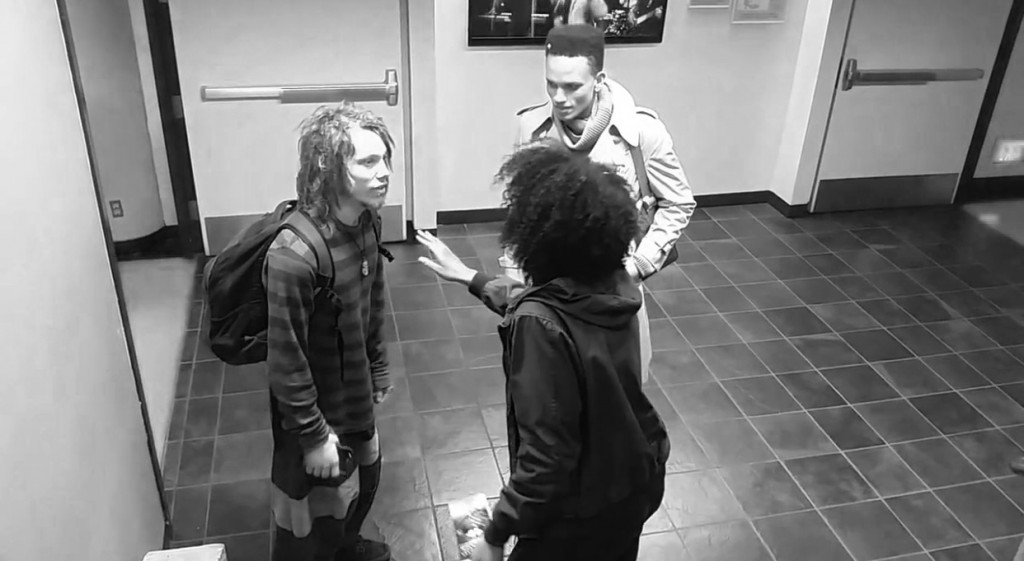Cultural Appropriation or Over-Sensitivity?

By Dakari Thomas
Cultural appropriation has permeated society for decades but was more recently brought to light with the emergence of social media.
On March 28, 2016, a confrontation occurred between two San Francisco State University students: Cory Goldstein, a white student, and Bonita Tindle, a black student. The confrontation was recorded on video by peers near its conclusion, and shows Tindle harassing Goldstein over his hair.
“You’re saying that I can’t have a hairstyle because of your culture? Why?” Goldstein asks Tindle.
“Because it’s my culture,” Tindle responded. “Do you know what locks mean?”
He tells her dreadlocks were part of Egyptian culture and tries to walk away, but Tindle blocks Goldstein and grabs Goldstein’s arm. She then turns to the person filming to block his camera with her hand. Goldstein said he filed a campus police report after the heated argument but is not looking to press charges.
As an African American, I can genuinely sympathize with both sides of the argument on appropriation but also realize their hypocrisies.
Among minorities in America, we have become hypersensitive to the idea of our cultures being imitated. However, we have to realize as a society that cultural appropriation is present throughout every culture, and it is not frowned upon.
People of Cuban or Italian descent don’t ask American rapper Nas “Escobar” or Scarface to stop appropriating their movies. Skinny jeans could be considered punk ’70s or ’90s grunge culture, yet it’s a style worn throughout African American culture without batting an eye.
Modern-day dreadlocks were undoubtedly popularized first by Jamaican culture, which are completely different than those sported by African Americans. Yet, it doesn’t matter because we’re all black, right?
Someone outside of the culture calling dreads just a hairstyle alarms African Americans because it’s not just a hairstyle to us.
To us, our culture is everything. It is the only thing that we can rely upon as a sort of safe haven from what is foreign in the world, which is just about everything. Being forced into this country in the 1600s has left us no long-lasting history when compared with other races.
Most of us have no connection to our African roots, which forced us to create a culture that was heavily influenced by our enslaved ancestors. For decades, that culture has latched onto the proverbial “cool” label and we have embraced it to a fault. The high regard and success our culture has faced in entertainment has led to the majority of it becoming detached from the rest of society.
As a result, we don’t admire other cultures as much, and if we do, we’re ridiculed in our own communities. Crab mentality is deeply ingrained in our psyche, leaving us unable to grasp why someone of color would want to be associated with other cultures. We have what we deem the most important one of all.
It also does not help that we get looked at as “thugs” or “ghetto” for our slang and choices of clothing when people of fairer skin do the same and are considered cool.
Should people outside our culture care about this and do their best to shun the stereotypes around our culture?
Among minorities in America, we have become hypersensitive to the idea of our cultures being imitated.
Morally speaking, it would be ideal. However, we don’t live in an ideal world, so how can we expect it?
Cultural appropriation as we know it is a myth, because every culture is appropriated.
We have to accept appropriation as long as it is not a mockery of culture. Appropriators do not owe a culture’s people anything aside from basic human respect.
We must remember that the person who starts a trend is rarely recognized, while the one who popularized it has been praised in every recorded, idiosyncratic phenomenon to date. This acknowledgment and appreciation should be welcomed, but not required, for the simple fact that we shouldn’t need it.
Cultural appropriation drives a culture to develop and reach greater heights. The reason why African Americans become distraught at this notion is because our strongest, and in many cases only outlet, is being imitated.
But our community rarely asks: “Without culture, where would we be?”
Perhaps our own culture has become one of our biggest antagonists.
Contact the reporter
Send an email to: Dakari Thomas
